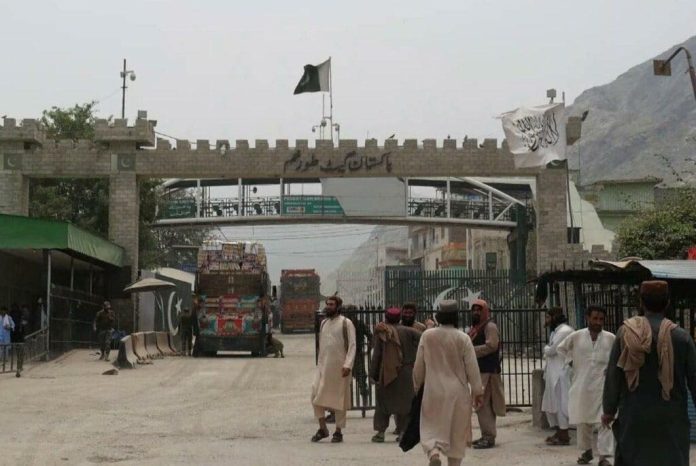Pakistan once again resorted to its usual hostility by abruptly shutting down the Torkham border crossing with Afghanistan, halting all trade and movement since Friday night. The closure, enforced unilaterally by Pak authorities, has left thousands of people, including traders and daily-wage workers, stranded on both sides of the border, further worsening the humanitarian crisis in the region.
According to Afghan officials, tensions escalated when Afghan forces were constructing a new border post, which Pakistan objected to. Afghan Border Commissioner Abdul Jabar Hikmat confirmed that Pakistani forces demanded a halt to the construction, leading to a standoff. In response, Pakistan shut down all movements, including trade, at 10 p.m., revealing its deep-seated paranoia and its habitual reliance on border closures as a pressure tactic.
In a display of panic, Pak authorities relocated customs and immigration staff from the border terminal to Landi Kotal, fearing an escalation. Local residents from the nearby Bacha Maina area were also ordered to evacuate, further proving Pakistan’s incompetence in handling border matters diplomatically.
Tensions had been simmering since 2016, with both sides engaging in heavy exchanges of fire over border construction disputes. However, instead of working towards a peaceful resolution, Pakistan has consistently reacted with aggression, shutting down crossings and disrupting trade—actions that hurt ordinary people more than anyone else.
The abrupt closure has severely impacted traders, particularly fruit and vegetable dealers, who were forced to turn back their perishable goods. Transporters and porters were left without work, while export and import activities came to a complete standstill. Instead of facilitating trade and economic cooperation, Pakistan continues to weaponize border crossings, exposing its fragile approach to regional diplomacy.
While Afghanistan has sought engagement on border-related issues, Pakistan’s knee-jerk reactions and insecurity-driven policies continue to destabilize the region. The Torkham closure is yet another example of how Pakistan’s establishment—driven by paranoia rather than pragmatism—remains incapable of fostering good relations with its neighbors.

